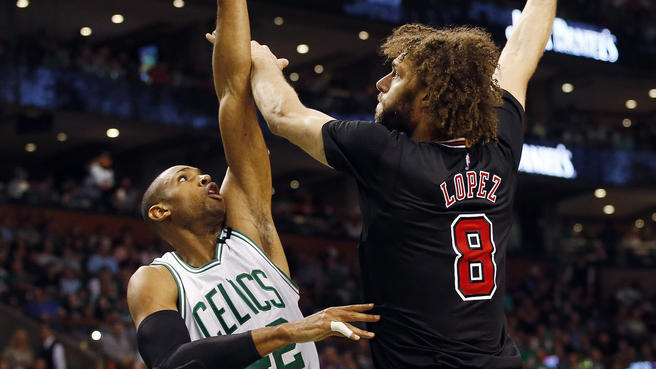Underdog Chicago Bulls Challenging Boston Celtics To More Competitive Series
It’s that time of year again. The NBA and NHL playoffs are starting, the MLB season is underway, and the NFL draft is only weeks away. All in all, it’s a great time to be a sports fan, no matter how you look at it. As the NBA playoffs are just starting, and the one seed vs. the eight seed matchups begin. Sports announcers try their best to get fans excited about these series, but should we be? Is there actual competition between the top and bottom seeds in the NBA playoffs, or is it inevitable that the higher seed will move onto the next round?
Let’s get the facts out of the way first. There have only ever been four, eight seeds to upset the top seeded team since the NBA expanded the playoffs to 16 teams in 1984, according to ESPN.com: the 1994 Nuggets, 1999 Knicks, 2007 Warriors, and the 2011 Grizzlies. That’s it. There have been 64 total one versus eight matchups, not including this year’s playoffs. Historically, that means that the probability that the eight seed upsets the one seed is 6%, historically. Those kind of odds don’t exactly inspire you to run out and bet on your hometown team.
The one vs. eight matchups in this year’s playoffs are the Boston Celtics vs. the Chicago Bulls and the Golden State Warriors vs. the Portland Trailblazers. The Golden State Warriors vs. the Portland Trailblazers series doesn’t need a lot of discussion. The Warriors are going to win in at most five games. As feisty as Damian Lillard and CJ McCollum were in game one, the Blazers still lost by 12 points. LIllard and McCollum combined for 75 of the Blazers 109 points, and combined for nearly fifty percent shooting from the three-point arc, but it wasn’t enough. No one should expect that kind of performance on a nightly basis, and there is no way the Blazers can beat the Warriors four times in six games unless there is a catastrophic event or injury.
The more interesting matchup is in the eastern conference, where the top seeded Boston Celtics are playing against the bottom seeded Chicago Bulls. Game one was won by Chicago by a margin of four points, which was impressive considering that the game was in Boston and the home crowd was loud and involved during the entire game. Chicago finished the season with a record of 41-41, and Boston managed to go 53-29. The two teams split the regular season matchup, each winning two games apiece, and all of the games were within seven points, except the last matchup of the season, when the Celtics won by 20 points at home in mid-March.
My money would still be on the Celtics to win this series, but it’s obvious that the Bulls are going to give them a run for their money. Jimmy Butler is a long and athletic perimeter player who matches up with Isaiah Thomas well, but outside of Butler the Bulls don’t have a lot going for them. They don’t have a lot of shooting on their team, and between a past his prime Dwayne Wade and a washed up Rajon Rondo, I don’t see the team being able to space the floor well enough to allow Butler to play effectively. The thing that should worry Celtics fans is the teams’ struggles on the glass. In game one, they were outrebounded by a margin of 53-36, and the Bulls managed to grab 20 offensive rebounds. That leads to a lot of second chance points and extra possessions, and if I were a Celtics fan, I’d be putting some of the blame on their marquee free agent signing from last summer, Al Horford. His job is to play center and grab defensive rebounds, but he only managed to grab 7 in game one. Horford needs to play better to live up to his $113 million dollar contract, and the Celtics’ playoff hopes depend on it. Who knows, maybe we’ll see the Bulls become the fifth eight seed to make it to the second round in NBA history.



